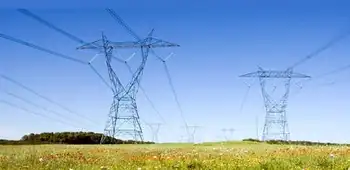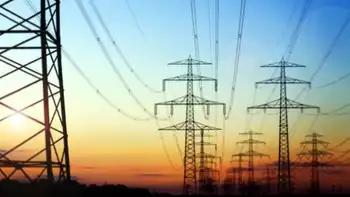GE calls for trade deal in environmental goods
By Reuters
Protective Relay Training - Basic
Our customized live online or in‑person group training can be delivered to your staff at your location.

- Live Online
- 12 hours Instructor-led
- Group Training Available
GE's senior counsel for intellectual property and trade, Thaddeus Burns, said the deal should be negotiated separately from the World Trade Organization's Doha round of talks to open up world trade. The Doha talks are in their eighth year with no sign of a breakthrough.
The call by the world's biggest maker of electric turbines and jet engines focused attention on the difficulties of reconciling environment and energy policy with trade rules.
"We believe that some kind of multilateral agreement... could be something that would be very useful for spurring the diffusion of green technology, both in the form of goods and services," Burns told an energy conference at the WTO.
One model could be the agreement on information technology, negotiated by a group of WTO members to eliminate duties on a range of high-tech products to foster technological development.
WTO Director-General Pascal Lamy says international agreements to curb greenhouse emissions, say at December's Copenhagen climate summit, need not conflict with trade rules.
But trade experts say there is still plenty of scope for trade disputes arising from the application of emission curbs and many legal grey areas would need to be clarified.
Burns cited the example of wind turbines, in which GE — a multinational manufacturing and selling around the globe — is encountering high tariffs.
Five countries — Denmark, Germany, India, Japan and Spain — account for 93 percent of world production of wind turbines, helped by a favorable regulatory regime in the European Union.
The biggest producers are Denmark's Vestas, GE, Spain's Gamesa, Germany's Enercon and Siemens, and India's Suzion.
But the product, a key source of renewable energy, is subject to an average tariff of 7.5 percent around the world, ranging from 14 percent in Brazil, 8 percent in China to 2.7 percent in the EU and 1.3 percent in the United States.
An agreement that cuts and rationalizes these tariffs — imposed on global trade in wind turbines and parts of nearly $6.6 billion in 2008 — would promote green technology, he said.
Green technology producers also face non-tariff barriers — regulatory red-tape and standards — that block their sales.
Because much energy infrastructure is bought by governments, state procurement policies such as "Buy America" in the United States and similar measures in China and Canada are disrupting trade in green goods.
Burns cited the example of GE's hydro technology, produced in Canada, a center for advanced water energy. U.S. "Buy America" policies mean this cannot be sold in the United States.
Similar barriers are faced by Brazil, the world's biggest exporter of ethanol, said a senior Brazilian diplomat.
Flavio Damico, Brazil's deputy ambassador to the WTO, told the conference ethanol faced tariffs of 42.9 percent and 46.0 percent it the European Union and United States respectively, against zero on oil.
Measures to promote sustainable development could also turn out to be discriminatory, targeting other countries' production.
"If people are serious about emissions, why tax clean, renewable fuels while dirty, non-renewable and price-volatile oil is admitted duty-free?" he asked.
The result was that ethanol was treated like an agricultural product, with only 10 percent of world production — which hit 79 billion liters in 2008 — traded globally.











